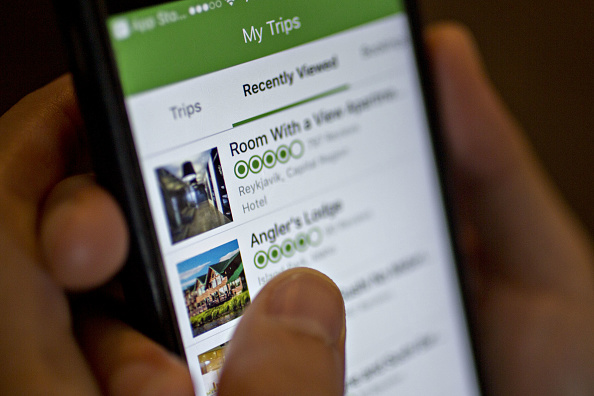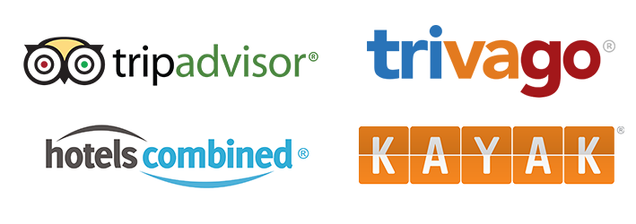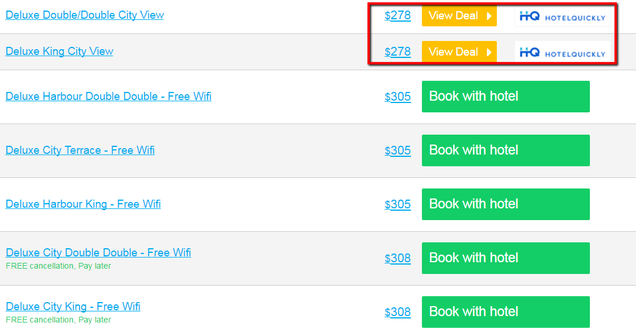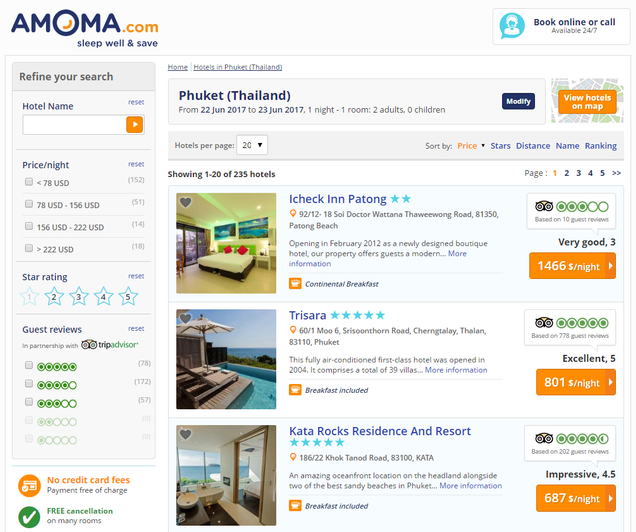Hotel Brand Websites, OTA’s, Meta Search and Wholesalers: A Distribution Dilemma Within The Industry

By Nick Cohen
The year is 2001, and the world is still recovering from the tragedy of September 11th. The travel industry is in a downward spiral as fears of flying and terrorism ripple across the United States and beyond, and hotels have lost significant occupancy due to a decrease in demand.
Simultaneously, a fledgling technology is emerging which will eventually take advantage of the internet explosion, as well as hotel management’s desperation to fill rooms. It will reshape our industry forever, and this platform now commonly referred to as Online Travel Agencies, or OTAs, will allow hotels to easily sell their rooms on the internet through new consumer facing websites such as Expedia, Travelocity and Orbitz.
Fast forward to 2017. The OTA’s have gained the majority of market share for online reservations, and digital platforms like Booking.com and Ctrip.com have loyal member volumes that far surpass brand websites. In many cases, the OTA companies are valued well beyond traditional hotel brands (as of May 2017, Priceline Group has a market capitalization of nearly USD 92 Billion). They have also helped to create a new concept as they grew in popularity and scale over the last number of years, and it was the precedent of transparency. Pricing that was once hidden to the everyday user, could now be exposed to the whole world, publicly, with a few clicks online. As OTA channels grew enormously with time, so did the access to real time rates and availability for virtually every hotel around the world.
With this concept in mind, from the OTA’s we have seen the rapid expansion of ‘meta search’ channels. These are one-stop price comparison platforms where a customer can view a price for a single hotel room across multiple websites (without having to browse those websites one-by-one). Sites within this category include Kayak, Trivago, TripAdvisor, Qunar and Google, and they are all working to simplify the travel research process for consumers.

With the OTA channels continuing to grow through massive marketing efforts and superior technology, and with meta search sites following their lead, a relatively new challenge has emerged for hoteliers. It represents a very complex dynamic between one of the most traditional ways to sell a hotel room, and one of the most modern ways to sell a hotel room. This once again all comes back to the concept of price transparency. Wholesale has been a core business driver in hotels for many years, helping properties build base business through private negotiated rates and partnerships. Historically, these wholesalers would sell their inventory offline to their own private networks of contacts. Even though the pricing would typically be lower than publicly available RACK rates, it was a reliable foundation of occupancy for hotels to build off of.
As technology has become more sophisticated with Application Programming Interfaces (APIs) readily available, we have seen the rapid growth of wholesale rates being sold publicly, online, through some of the powerful meta search channels mentioned above. This means that wholesalers are selling discounted rates, which directly undercut brand websites and OTAs, to anyone who has access to the internet. Beyond just meta search, some OTA websites are now even positioning themselves as ‘online marketplaces,’ where they too will sell wholesale inventory directly instead of the inventory provided by the hotels. To remain competitive and increase market share, online channels want to sell the lowest price possible, even if it means reducing their own margins by selling a cheaper room to the customer.

You would think that hoteliers would want to fix this problem immediately. Online wholesale business undercuts channels which are much more profitable such as their direct brand website. This issue however is multi-layered and is not easy to remedy for the following key reasons:
Hotels still want wholesale business!
Hotels still maintain strong relationships with a number of wholesale partners, big and small, and they rely on these partnerships to generate base business. Turning off these channels would potentially mean the loss of significant revenues, at least in the short term. Although wholesale channels can undercut other websites when sold online, they also still generate incremental business when sold offline through the traditional method
Finding the source of whole business online can be very difficult
When wholesale rates appears online, it’s generally very difficult to know which wholesaler specifically is providing that inventory. The wholesale partners themselves don’t generally sell rooms through their own websites, but sell their rates through wholesale aggregation channels such as Amoma.com. It’s channels like Amoma who then sell the rates online through their own interface, and promote their rates through larger meta search intermediaries such as Trivago and TripAdvisor. Generally the only way to find the true source is to make a test booking online, and then track how that reservation comes into the hotel’s central reservation system (each reservation is typically flagged with an inventory source). Many hotels are reluctant to do this since a booking requires use of a credit card and sometimes even pre-payment, and then cancellation of that test booking is not always easy to do. The test booking process is both cumbersome to manage at scale, and is also financially risky for a hotel if those booking cannot be cancelled.

Employee incentives are at stake
Within hotel sales departments, team members are still incentivized to drive wholesale volume, regardless of where that volume is being sold (offline or online). Wholesale partners generally don’t provide specifics on how they are selling their inventory, and as long as room allotments are sold, the responsible sales team members are satisfied. This is creating an unavoidable rift between the direction of some sales leaders with the revenue management and digital strategy teams.
So what’s next?
Hotel companies are dealing with this situation in a variety of ways. Some are cutting off wholesale altogether since they simply can’t control where their inventory is ending up. Others are maintaining the partnerships, but are working to move away from static room allotments and over to dynamic pricing and availability where the hotels have more control over the inventory they send to the wholesalers. This is a major problem facing the industry that very much remains unsolved.
If we take ourselves back to the 2001, price transparency was a challenge for hoteliers. Properties simply didn’t have direct access to a large enough segment of customers, therefore traditional partnerships like wholesale was an absolute necessity. With the growth of the OTAs though, and the emergence of new technologies such as meta search, that access is no longer an issue. The world is accessible for each hotel with a few quick key strokes on a computer. It is now only a matter of time until hoteliers make one of the following decisions:
- Utilize wholesalers purely as another online distribution channel, selling rates that are parity with every other website (brand.com and OTAs)
- Remove wholesale out of the channel mix altogether, realizing that room inventory can be be sold among the multitude of websites and digital platforms already available
 Nick Cohen is based in Hong Kong and leads digital strategy for Hyatt Hotels in Asia Pacific. He oversees online marketing efforts for all Hyatt brands and properties across the region, and manages a variety of e-Commerce and digital platform projects to help increase online revenues for the company. Prior to joining Hyatt, Nick held senior e-Commerce and digital marketing roles at Langham Hospitality Group, Mandarin Oriental Hotel Group and Sabre Hospitality Solutions. Earlier in his career, working on-property for various hotels he developed extensive knowledge in operations, along with Sales & Marketing and Revenue Management expertise. Nick also holds a graduate diploma in Hotel and Tourism Business Management from Boston University.
Nick Cohen is based in Hong Kong and leads digital strategy for Hyatt Hotels in Asia Pacific. He oversees online marketing efforts for all Hyatt brands and properties across the region, and manages a variety of e-Commerce and digital platform projects to help increase online revenues for the company. Prior to joining Hyatt, Nick held senior e-Commerce and digital marketing roles at Langham Hospitality Group, Mandarin Oriental Hotel Group and Sabre Hospitality Solutions. Earlier in his career, working on-property for various hotels he developed extensive knowledge in operations, along with Sales & Marketing and Revenue Management expertise. Nick also holds a graduate diploma in Hotel and Tourism Business Management from Boston University.
Sources:
-
http://representasianews.com/infographic-hotels-vs-otas-a-brief-history/
-
https://www.tnooz.com/article/performance-metasearch-giants-hotels/
16 comments
Great overview and summary of the current situation with wholesalers. In working for an international OTA, myself, I’m constantly shocked at how oblivious some hoteliers are about where their various rates are being sold. Wholesalers need to be more transparent about their business models, while hotel sales and revenue managers need to work closer together to manage their distribution channels.
Thanks for your feedback and comments Jordan. I think one of the biggest challenges is getting transparent data from the wholesalers. I have yet to hear about a report from one of the wholesale partners which clearly breaks out online booking through sites like Amoma, versus bookings sold via the traditional wholesale model. A report like that would give hotels a reality check on how these partners are actually selling their inventory today.
Excellent Market research Nick! Increasingly, many metasearch sites, Hoteliers having the challenge of keeping relationships with wholesalers while keeping sales competitive on their brand branded site, app and online travel agencies.
Hello, this is a good article which Taipei faced a lot, when dealing with Ctrip, which we sure have difficulties when doing only test bookings since the amount is huge. are there any other ways to avoid besides test booking like i heard , adding up amendment in contract with Wholesalers that the price is prohibited to be nake selling.
hello!,I like your writing very much! percentage we keep in touch extra about your post on AOL? I require a specialist in this house to unravel my problem. May be that’s you! Looking ahead to see you.
Are you finding that hotels are moving towards dynamic agreements, but that the wholesalers are reluctant to embrace this new way of doing business. As an independent, there is less of a brand force driving business to our hotel, so would it give an independent a stronger motive to continue with static agreements or are independents able to compete directly with the brands through the META sites with our own inventory?
Hi Angie – I would first try to push your wholesale partners to give you booking transparency. Ask them where their production is coming from (online vs offline), and try to make some decisions based on the data. If they won’t give you that transparency, another option would be to cut off the wholesalers (at least temporarily) and see if the business naturally just shifts to other channels such as your Brand.com and ‘official’ OTAs like Expedia and Booking.com. I realize there is inherent risk here, but sometimes you need to rip off the band aid and work from there. Do also make sure you have sufficient digital marketing in place already to push traffic to your hotel’s direct website (i.e. search engine marketing, social media and display ads)
Excellent article that sums up the current challenges our industry is facing today.
Nick my compliments for the clarity of your article, this is indeed a very important current development in our industry
and will be one of the most important developments for the remainder of 2018
Very well drafted, this is exactly the real scenario of today’s hospitality revenue world and everyone is trying to overcome with many strategies & tools. Nick, how about offering the same rates to wholesalers as OTA’s with same discount %, i must say it will be a difficult risk for the one to start at first but can be lead to a big revolution and changes will happen in a good way.
Cheers!
I would love to see a follow-up article on downward distribution and how the brands have handled it. Ran into this issue in a major CA vacation destination in 2017 with a (formerly) very reputable wholesaler. This was happening across the brand(s). What’s the latest?
Thanks for sharing a very deeply informative and helpful article, I really enjoyed reading it. Also, Visit:- Magento 2 B2B Registration Extension
Thanks a lot for this great article. Brilliant job! We made the same experiences. While other industries like finance or healthcare already passed the “think about” stage, the hotel sector is way behind in our opinion. We’ve seen many hospitality companies struggling from daily workload, unable to find enough resources to develop blockchain technology.
Mr Gandon from https://www.socioinfocyber.org/university-partnerships-programme/
We are providing the best detective services in Agra for personal and corporate, hire a best detective agency in Agra for legal case. Call @ 8860008556 for investigation services in Agra.
For More info Visit – https://www.cityinvestigators.in/detective-agency-in-agra/
Step into our spacious and stylishly appointed dubai apartment hotels , featuring modern decor and thoughtful amenities. Each unit is designed to offer ample living space, ensuring that you have the freedom to relax, work, or entertain at your leisure.